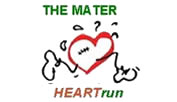RISK FACTORS FOR CHILD UNDER-NUTRITION WITH A HUMAN RIGHTS EDGE IN RURAL VILLAGES OF NORTH WOLLO, ETHIOPIA
Abstract
Objective: To identify the factors associated with childhood under-nutrition in North Wollo, Ethiopia.
Design: A cross-sectional study.
Setting: Four purposefully selected rural villages (kebeles) in North Wollo zone of the Amhara Region, Ethiopia.
Subjects: One hundred-forty four sampled households with under five year old children (n=200) comprising of 96 male-headed, 24 female-headed and 24 landless with children aged between six and 59 months.
Main outcome measures: Determinations of anthropometric measurements and various socio-economic factors.
Results: The overall prevalence rate of under nutrition as determined by stunting, underweight and wasting was 44.5%, 25.0% and 9.0% respectively with more preponderance among the toddlers. The proportion of under nutrition was higher in female-headed households. Shortage of farmland, lack of irrigation, dispossession of livestock, shortage of non-farm employment options, parental illiteracy, high number of children, water inadequacy, food taboos and wrong eating habits of families, poor
child feeding practices, deprivation of health nutrition education as well as maternal attributes such as young motherhood, low body mass index and short stature of mothers influenced the nutritional status of the children. The prominent risk factors for undernutrition among children were dispossession of livestock, child food taboos and wrong eating habits of families, deprivation of health/nutrition education, short stature and
early marriage of mothers.
Conclusion: This study led to the conclusion that improvement of household resources through promotion of irrigation and initiation of income generating livelihood options can reverse the nutrition situation for better. Health and nutrition education focusing on appropriate child feeding, eradication of harmful traditional practices such as early marriage and inequitable intra-household food distribution, encouragement of family
planning and nutrition interventions including food diversification is recommended.
Design: A cross-sectional study.
Setting: Four purposefully selected rural villages (kebeles) in North Wollo zone of the Amhara Region, Ethiopia.
Subjects: One hundred-forty four sampled households with under five year old children (n=200) comprising of 96 male-headed, 24 female-headed and 24 landless with children aged between six and 59 months.
Main outcome measures: Determinations of anthropometric measurements and various socio-economic factors.
Results: The overall prevalence rate of under nutrition as determined by stunting, underweight and wasting was 44.5%, 25.0% and 9.0% respectively with more preponderance among the toddlers. The proportion of under nutrition was higher in female-headed households. Shortage of farmland, lack of irrigation, dispossession of livestock, shortage of non-farm employment options, parental illiteracy, high number of children, water inadequacy, food taboos and wrong eating habits of families, poor
child feeding practices, deprivation of health nutrition education as well as maternal attributes such as young motherhood, low body mass index and short stature of mothers influenced the nutritional status of the children. The prominent risk factors for undernutrition among children were dispossession of livestock, child food taboos and wrong eating habits of families, deprivation of health/nutrition education, short stature and
early marriage of mothers.
Conclusion: This study led to the conclusion that improvement of household resources through promotion of irrigation and initiation of income generating livelihood options can reverse the nutrition situation for better. Health and nutrition education focusing on appropriate child feeding, eradication of harmful traditional practices such as early marriage and inequitable intra-household food distribution, encouragement of family
planning and nutrition interventions including food diversification is recommended.
Refbacks
- There are currently no refbacks.


